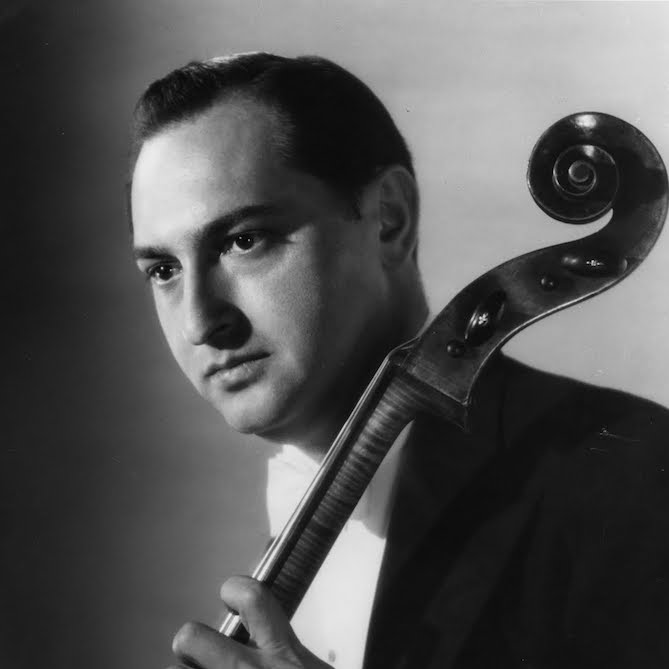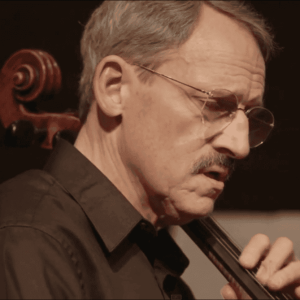
How Bernard Greenhouse Showed Me the Way: Lessons Learned
Timothy Eddy
My apprenticeship to Mr. Greenhouse lasted about 9 years, from the time I was 15 until I graduated from the Manhattan School of Music with a Masters Degree at 24. There were so many ways that he opened my eyes, helping me see the ultimate possibilities of being a cellist and a performer.
When I began working with him, I was already fascinated with “mapping out” the cello: learning patterns, left-hand shapes, and the effectiveness of well-targeted strategies of practicing….. but I was stiff and unable to play accurately when I tried to play quickly. Furthermore, Bernie pointed out, my sound was only a fraction of what I could really produce, while using far less effort. On top of that, I needed to make more specific, passionate statements with my playing, vividly and generously.

Bernard Greenhouse with grandson, Jonathan Rich, sailing in Wellfleet, Mass., circa 1970. Photo Credit: Timothy Eddy
I needed to know how, and over the years, he showed me. *
First of all, his playing was so compelling and touching, it awakened my own emotions in a way that strengthened and re-focused my sense of purpose.
For all kinds of technical challenges, he constantly encouraged me to “let go” into the instrument, and to use simple, comfortable, direct motions that are already natural for our torso, arms, forearms, hands and fingers to do (such as tossing and rebounding). [As I nervously played a Popper Etude for him one day, he encouraged me to play it again a couple of times at a tempo that was faster than I could play it well yet, to find the larger physical gestures that the passages needed, and then go back and fill in the details accurately within those gestures.]
To produce more sound, more easily, I just needed to allow my bow stroke to be a more simple swinging of my arm horizontally, in front of me, with vertical force coming from releasing some degree of my arm weight into the string. But the primary action was horizontal, while the vertical weight provided the depth of engagement of the string that we needed for the depth of sound we wanted.
Bernie made me aware, then, that all aspects of my sounds were a result of some physical action and of the natural way in which that action engages the instrument. Bernie got me noticing, listening, and experimenting, as I searched for the “magic” combination of elements in a sound that would serve as a clear and true symptom of the way I feel.
Since one of music’s greatest potentials is certainly to share our passionate inner life, Bernie’s fervent insistence that we take every sound personally is priceless and timeless guidance for us.
He often referred to his “expressive vocabulary,” the rich, imaginative and evocative range of his sounds, as the gift that he most wanted to give us, so that we could then use it to reach out with our own heartfelt messages.
- Listen to how specific and effective his advice was in a segment of his class at Juilliard on Feb. 11, 2005.
- Listen here to the introductory Greenhouse interview for Bernie’s recounting of his studies with Salmond, Feuermann, Alexanian, and Casals.
 Cellist Timothy Eddy has earned distinction as a recitalist, soloist with orchestra, chamber musician, recording artist, and teacher of cello and chamber music. He has performed with numerous symphonies including Dallas, Colorado, Jacksonville, North Carolina and Stamford, and has appeared at the Mostly Mozart, Ravinia, Aspen, Santa Fe, Marlboro, Lockenhaus, Spoleto and Sarasota music festivals. He has won prizes in numerous national and international competitions, including the 1975 Gaspar Cassado International Violoncello Competition in Italy. Mr. Eddy is currently Professor of Cello at the Juilliard School and New York’s Mannes College of Music, and he was frequently a faculty member at the Isaac Stern Chamber Music Workshops at Carnegie Hall. A former member of the Galimir Quartet, the New York Philomusica and the Bach Aria Group, he collaborates regularly in recital with pianist Gilbert Kalish. He has recorded a wide range of repertoire from Baroque to avant-garde for the Angel, Arabesque, Columbia, CRI, Delos, Musical Heritage, New World, Nonesuch, Vanguard, Vox, and Sony Classical labels.
Cellist Timothy Eddy has earned distinction as a recitalist, soloist with orchestra, chamber musician, recording artist, and teacher of cello and chamber music. He has performed with numerous symphonies including Dallas, Colorado, Jacksonville, North Carolina and Stamford, and has appeared at the Mostly Mozart, Ravinia, Aspen, Santa Fe, Marlboro, Lockenhaus, Spoleto and Sarasota music festivals. He has won prizes in numerous national and international competitions, including the 1975 Gaspar Cassado International Violoncello Competition in Italy. Mr. Eddy is currently Professor of Cello at the Juilliard School and New York’s Mannes College of Music, and he was frequently a faculty member at the Isaac Stern Chamber Music Workshops at Carnegie Hall. A former member of the Galimir Quartet, the New York Philomusica and the Bach Aria Group, he collaborates regularly in recital with pianist Gilbert Kalish. He has recorded a wide range of repertoire from Baroque to avant-garde for the Angel, Arabesque, Columbia, CRI, Delos, Musical Heritage, New World, Nonesuch, Vanguard, Vox, and Sony Classical labels.
Subjects: Artists
